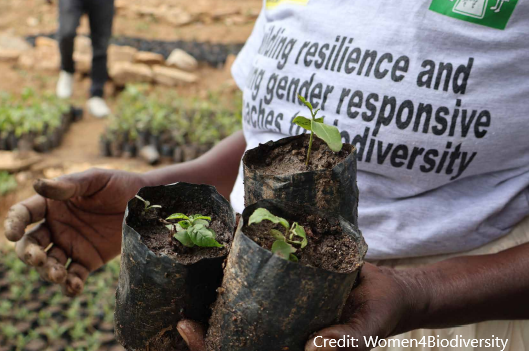
Ecosystem restoration is recognised as a key strategy for confronting the dual crises of climate change and biodiversity loss. The United Nations Decade on Ecosystem Restoration (2021-2030)1 sets an ambitious agenda to restore degraded ecosystems worldwide (FAO et al., 2021). However, while the ecological dimensions of restoration are widely documented, the socio-cultural aspects – especially gender – remain critically neglected. This exclusion undermines the effectiveness and equity of restoration efforts and contributes to entrenched inequalities (Oxfam, 2021). Women, particularly those in Indigenous and local communities, are central to natural resource stewardship but are often sidelined in environmental governance (Deininger & Byerlee, 2011).












